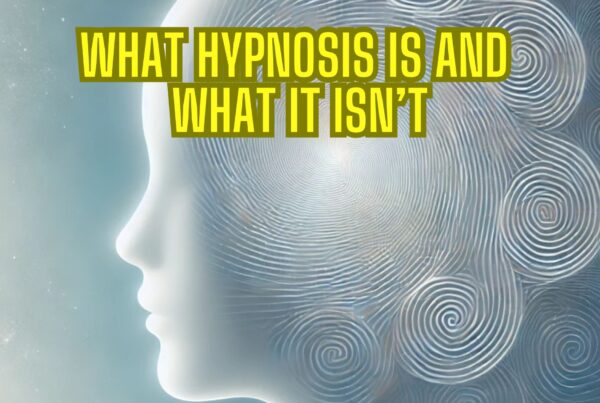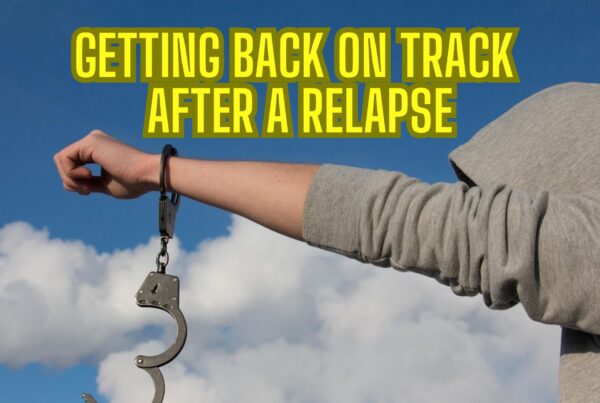Breaking Addiction Through Counselling and Hypnosis
Today, addiction seems omnipresent – from alcohol, drugs, and smoking to gambling, technology, and even food. While traditionally viewed as a physiological response, our understanding of addiction has expanded significantly. Beyond conventional substances, addiction can also involve behaviours like social media use, gambling, and eating. As we deepen our knowledge of mental health, addiction reveals itself not simply as a physical dependency, but as a complex psychological challenge, often rooted in emotional and behavioural factors. Addressing both body and mind, counselling and hypnosis provide promising paths to long-lasting recovery, empowering individuals to reclaim control over their lives.
Understanding Addiction: More Than Just a Chemical Dependence
At its core, addiction goes beyond mere physical dependence. Often, it serves as a form of “experiential avoidance”—a temporary escape from unresolved issues or painful emotions. Individuals struggling with addiction may use substances or behaviours to distract from inner insecurities or emotional wounds. Moreover, those in supportive environments with strong social ties often show a lower tendency toward addictive behaviour. When addiction becomes an attempt at self-soothing, breaking free requires a holistic approach that targets both physical cravings and underlying psychological factors.
The Role of Self-Criticism in Addiction
A recurring theme among individuals battling addiction is a harsh inner dialogue marked by self-criticism. They frequently magnify their flaws, which reinforces their addictive behaviour as a coping mechanism. This inner conflict creates a vicious cycle where self-doubt feeds addiction, and addiction deepens self-criticism. By learning to soften this self-critical voice, counselling helps individuals replace negative self-perceptions with a sense of self-worth, thus paving the way for genuine recovery.
Shame: The Invisible Chain That Binds
One of the most insidious barriers to overcoming addiction is shame. Many feel trapped by overwhelming guilt or embarrassment, which makes it challenging to seek help or confront the issues that triggered their addictive behaviours. Avoidance may bring temporary relief, yet it does not address the root causes. Instead, shame tightens its grip, reinforcing addiction. Through therapeutic techniques that encourage self-acceptance, counselling can help individuals free themselves from shame, creating a path toward healing.
Acceptance and Commitment Therapy (ACT): Building a Foundation of Values
Acceptance and Commitment Therapy, or ACT, has gained recognition as an invaluable tool in addiction recovery. ACT views addiction as a deviation from personal values, often driven by external pressures or emotional pain. By focusing on core values, ACT helps individuals reconnect with what truly matters, empowering them to make decisions that align with their authentic selves.
Key Principles of ACT in Addiction Recovery
- Values Identification: ACT encourages individuals to identify and explore their personal values, helping them recognise where addiction conflicts with these beliefs.
- Defusing Negative Thoughts: Through ACT, clients learn to separate themselves from negative self-perceptions, seeing these as thoughts rather than absolute truths.
- Mindful Acceptance: ACT promotes mindful acceptance of emotions without judgement, reducing the urge to seek quick fixes through addictive behaviours.
By seeing thoughts as temporary and non-binding, individuals can choose actions that reflect their values, allowing them to break the cycle of addiction with clarity and purpose.
Hypnosis in Breaking Addiction: Visualising a New Path
Hypnosis has gained popularity as a powerful tool in addiction recovery, particularly for enhancing motivation and visualising an addiction-free life. By accessing the subconscious mind, hypnosis allows individuals to connect with positive imagery and rehearse new behaviours in a relaxed state. Research shows that hypnotherapy can be particularly effective for addictions such as smoking and gambling, providing a safe, non-invasive method to reinforce willpower and develop healthy habits.
Benefits of Hypnosis for Addiction Recovery
- Increased Motivation: Hypnosis strengthens commitment to change, encouraging individuals to visualise a fulfilling, addiction-free future.
- Behavioural Reprogramming: Through hypnotic suggestions, individuals can rewire their responses to cravings, replacing addictive behaviours with healthier alternatives.
- Stress Reduction: Hypnosis promotes calmness, which helps reduce stress—a common addiction trigger—and supports coping without substances.
For many, hypnosis is an empowering tool that reinforces positive behavioural changes and diminishes the influence of cravings, making long-term recovery more achievable.
Transitioning to a Healthier Perspective on Addiction
Without addressing the emotions and thought patterns that fuel addiction, individuals can become trapped in a cycle of craving and regret. For genuine recovery, adopting a new perspective on addiction as a manageable condition rather than an unbreakable habit is essential. Counselling and hypnosis offer methods to reframe these challenges, providing alternative ways to respond to cravings, emotions, and stressors.
Helpful Resources for Starting Your Recovery Journey
Starting the journey of addiction recovery can feel overwhelming, yet there are numerous resources available to help guide you. Release Hypnosis offers a free eBook, “5 Steps to Becoming a Non-Smoker”, an invaluable resource for those looking to quit smoking. Expert support and educational resources lay the foundation for lasting recovery.
FAQs
- How effective is counselling for addiction recovery?
- Counselling addresses the psychological aspects of addiction, helping individuals explore and resolve underlying issues, develop coping skills, and create a strong support network. Many find counselling invaluable for long-term recovery.
- What types of addiction can hypnosis help with?
- Hypnosis is useful for various addictions, including smoking, alcohol, gambling, and even food addiction. By accessing the subconscious mind, hypnosis can support behavioural changes and reinforce positive mental imagery.
- Can ACT therapy help with non-substance addictions?
- Yes, ACT therapy is effective for both substance and behavioural addictions. By focusing on values and mindful acceptance, it provides individuals with tools to resist addictive behaviours.
- What should I expect during a hypnotherapy session for addiction?
- The majority of sessions will involve a combination of talking through the current challenges, issues, and successes along with the use of various hypnotherapy techniques to help address the immediate issues and build motivation.
- Is online hypnotherapy as effective as in-person sessions?
- Online hypnotherapy has proven effective for many clients, offering flexibility and accessibility without compromising the quality of care. However, effectiveness can vary based on personal preference and access to a quiet, comfortable space.
- Can shame or guilt trigger addiction relapse?
- Yes, shame and guilt are powerful emotions that can lead to relapse. Addressing these feelings through therapy can help individuals cope constructively, reducing the risk of relapse.
Breaking Addiction for Good!
Addiction is a multifaceted challenge that demands an equally nuanced approach to recovery. Combining counselling and hypnosis offers a comprehensive path, targeting both the physical and emotional elements of addiction. Through techniques like ACT therapy and hypnotherapy, individuals can discover their core values, reframe negative thoughts, and visualise a healthier future. For those determined to break free, the journey may be challenging, but with the right support and resources, long-term recovery is well within reach.
Release Hypnosis Melbourne Hypnotherapy
Since 2016, Lawrence Akers has been working under the name Release Hypnosis, offering hypnotherapy and ACT-based sessions to people across Melbourne, with an option for online services as well. Based on St Kilda Rd, Release Hypnosis is accessible by the ANZAC station train and tram stop, making it a convenient location. Release Hypnosis can assist with a wide range of presenting issues, and a free 30-minute, no-obligation discovery call is available for anyone unsure if hypnotherapy is the right step forward.
Book Your FREE 30 Minute Consultation With Release Hypnosis NOW!
Related Reads:








